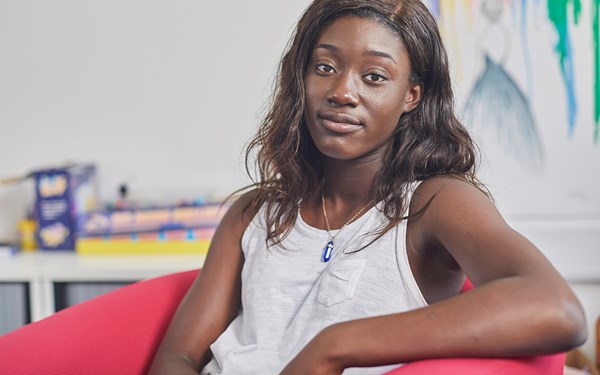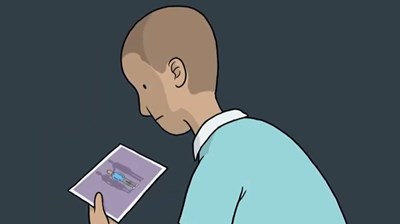What is non-recent abuse?
Non-recent child abuse, sometimes called historical abuse, is when an adult was abused as a child or young person under the age of 18. Sometimes adults who were abused in childhood blame themselves or are made to feel it’s their fault. But this is never the case: there's no excuse for abuse.
You might have known you were abused for a very long or only recently learnt or understood what happened to you. Whether the abuse happened once or hundreds of times, a year or 70 years ago, whatever the circumstances, there's support to help you. It's never too late.
Video: information for adult survivors of child abuse
Effects of non-recent abuse
The impact of child abuse can last a lifetime. Abuse can have a huge effect on your health, relationships and education and can stop you from having the childhood and life you deserve. You might find it harder to cope with life's stresses, getting a job or being the type of parent you want to be. You may also develop mental health problems and drug or alcohol issues.
The effects can be short term but sometimes they last into adulthood. If someone has been abused as a child, it's more likely that they'll suffer abuse again. This is known as revictimisation.
The long term effects of abuse and neglect can include:
- emotional difficulties like anger, anxiety, sadness or low self-esteem
- mental health problems like depression, eating disorders, self harm or suicidal thoughts
- problems with drugs or alcohol
- disturbing thoughts, emotions and memories
- poor physical health
- struggling with parenting or relationships.
Worried about a child?
You can contact the NSPCC Helpline by calling 0808 800 5000, emailing [email protected] or completing our report abuse online form.
Support
If you were abused as a child, you deserve to be believed and get support if you want to. Whether you’re speaking about the abuse for the first time or have had help in the past but need support again, there are people who can help.
Thinking about talking to someone close to you about the abuse can seem frightening. You might not know where to start or may be worried about their reaction. It's important to choose someone you feel you can trust to provide a listening ear.
You don't have to tell them everything. Even if you say very little, speaking to them might help to lighten the load and help you think about what you want to do next.
NAPAC is the National Association for People Abused in Childhood. NAPAC's trained staff speak with survivors of any type of childhood abuse over the phone, exploring the options available to them such as support groups and counselling to help empower callers to move forward. Calls are confidential, free from UK landlines and mobiles and can me made anonymous.
NAPAC also supports family members, friends and professionals who are helping someone who was abused, advising them on who else can help.
The NAPAC website provides a wealth of information and advice, including a postcode searchable database which lists local trusted organisations who can offer free or low-cost on-going support.
Talking to your GP might be helpful. They can refer you on to appropriate support, like counselling and let you know if the NHS has services for survivors in your local area.
You can also search for a private counsellor using the British Association for Counselling and Psychotherapy website.
Finding the right counsellor for you can take time. If therapy hasn't helped you in the past, it might be better for you to try a different counsellor. Ask them whether they have experience of supporting adults who were abused in childhood.
- Survivors UK offers a range of support services to men who experienced childhood or adult sexual abuse.
- Rape Crisis England and Wales, Jersey, Scotland and Northern Ireland provide a directory of local support services.
- Samaritans is available around the clock 365 days of the year to provide confidential emotional support for people who are experiencing feelings of distress or despair.
"It took me a long time to understand what happened to me as a child and the impact it’s had. But speaking to family, friends, my partner and NAPAC helped me get the support I needed."
Rupa / NSPCC staff
Reporting non-recent abuse
It's never too late to report abuse you experienced. But you don't have to report it to anyone if you don't want to. And no one should pressure or force you to do anything you don't want to.
Some people report non-recent abuse to stop the offender abusing other children. Some find that reporting gives them a sense of closure and helps them to start moving on.
If you do decide to, you can speak to the police about what happened to you. You can report abuse to the police no matter how long ago it happened. You can start by calling 101 and briefly explaining what you're calling about. They'll make sure you're put through to the right team who can support you.
It's normal to be anxious about reporting and worry about what might happen. If you don't feel comfortable contacting the police or want to find out more about your options, you can contact us. We're here to support you, no matter your worry.
Report Abuse in Education helpline
We’ve launched a dedicated helpline for children and young people who have experienced abuse at school, and for worried adults and professionals that need support and guidance, including for non-recent abuse. Call our new NSPCC helpine, Report Abuse in Education on 0800 136 663 or email [email protected].




